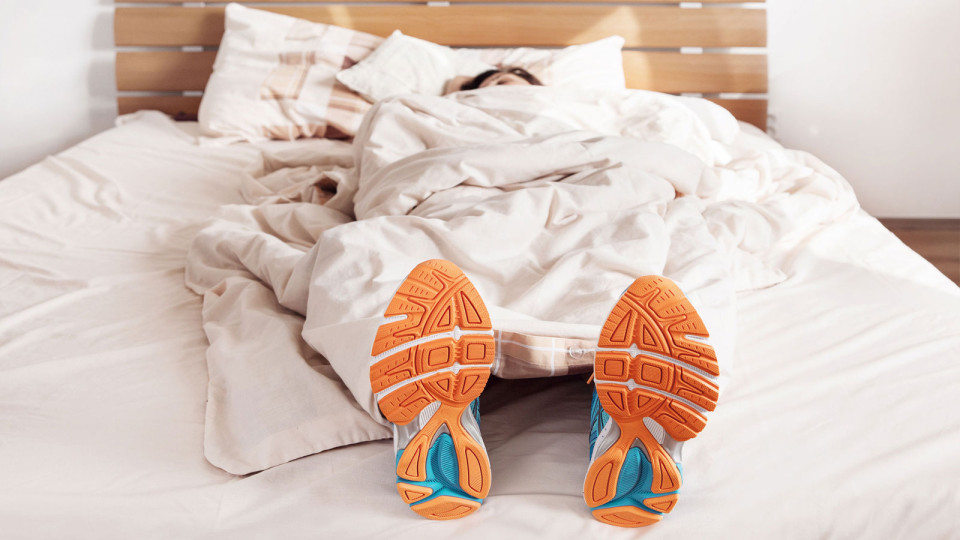Having run a marathon—or just cheering friends on because you’ve yet to try a full marathon yourself—you probably know that not all recoveries are created equal. What do we mean by this intriguing statement? That we’re all unique, so your recovery “style” may be far afield of your running mates and competitors.
But what intrigues us most is: “More runners under-recover than over-train.” It’s not deliberate. For myriad reasons, post-run recovery isn’t as prioritised as the rigorous conditioning and training efforts athletes undertake to prepare for a race, but if you’re to properly return your body to pre-race equilibrium, heed the tips in this article and take this pledge right now:
“I’m going to spend as much time on my recovery plan as I do on my training.”
There. Feel better?
Your Body 101
According to ABC News, here’s what happens to your body when you run a marathon: Your body summons every muscle fibre (including fast-twitch fibres reserved for sprinting), and in league with a large supply of blood and carbohydrate energy reserves, your body armours itself to go the distance by literally and figuratively stepping out of its comfort zone.
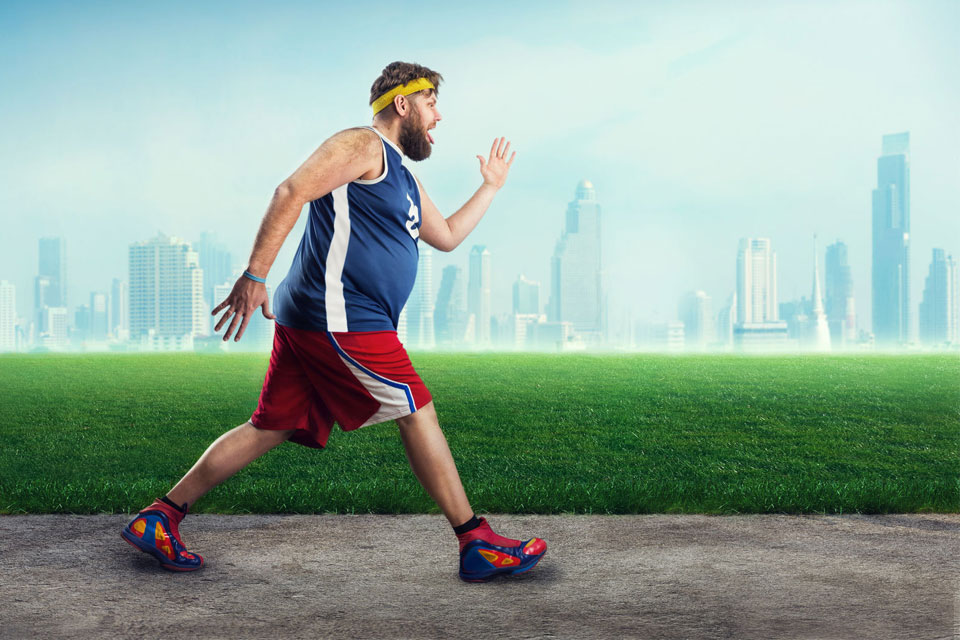
As you run long distances, glycogen stores become exhausted. The body compensates by breaking down fat and muscle protein. As a last line of defense, your heart moves into “cardiac drift”, rate spikes that some runners don’t even notice.
This dramatic process is often dismissed, but the magnitude of these changes requires a proper recovery path if you expect to be healthy enough to run all of those future marathons.
Post-Run Symptoms
Having come off a stressful and lengthy marathon, your body instinctively tries to adjust to slowing down your pace, even as the accelerated rate at which blood pumping through your heart continues unabated, even though you’re not running any more.
You may feel disoriented, lightheaded or dizzy as your body compensates for the slowdown experienced as you walk down the effects of the run. Stopping completely can be downright dangerous, so even if you’re exhausted, think like a giraffe and stay on your feet.
Heat stroke in warm, humid circumstances like Singapore’s legendary heat is common, as are urinary tract pain, bleeding and/or bladder issues, direct results of stressing out the kidneys if they don’t get enough hydration.
On the other hand, if you drank too much water, you could suffer from hyponatremia—a condition in which sodium concentrations are so severe, the brain can swell. This dangerous condition may manifest as an inability to remember simple things, like numbers, names and easy-to-recall facts.
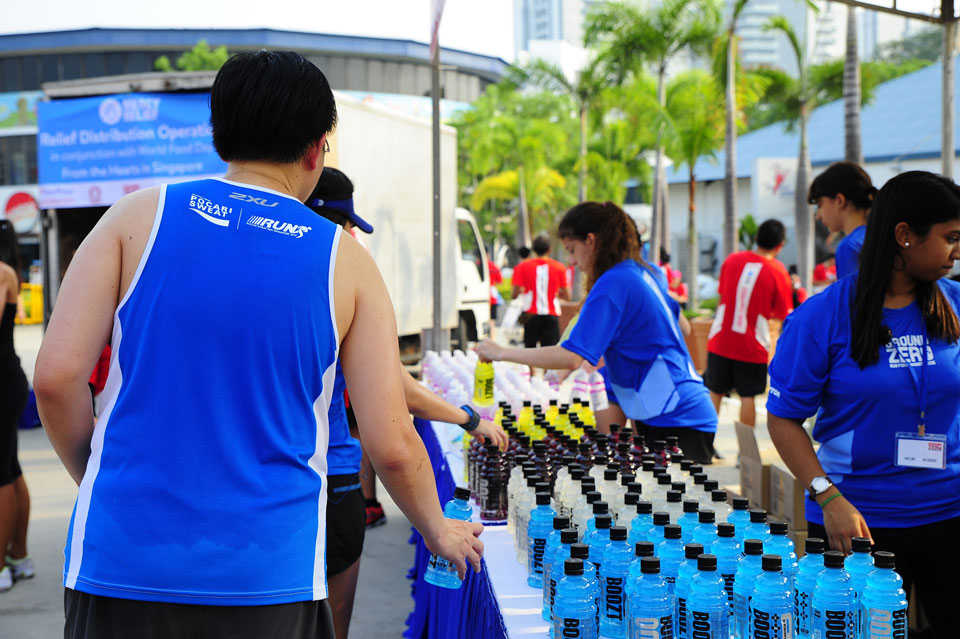
Regardless of how skillfully you prepared for a marathon, few runners can escape muscle pain mediated by adrenaline rushes during the race, but once the pace ends, the pain can kick in big time. Further, even veteran runners can suffer from tiny muscle tears and/or inflammation plus joint pain caused by the constriction of tissue that connects muscle to bone.
Having dramatically compromised your body by pushing it beyond endurance, it’s common for runners to develop immune system issues post-race that can trigger colds, infections or both.
Recovery Phase One: Your first 24-hours
Having run your race, gathered your accolades and experienced the euphoria known only to those who have had the courage to run a full marathon in Singapore, you’ll want to take incremental steps to begin the process of returning your body to its pre-race status.
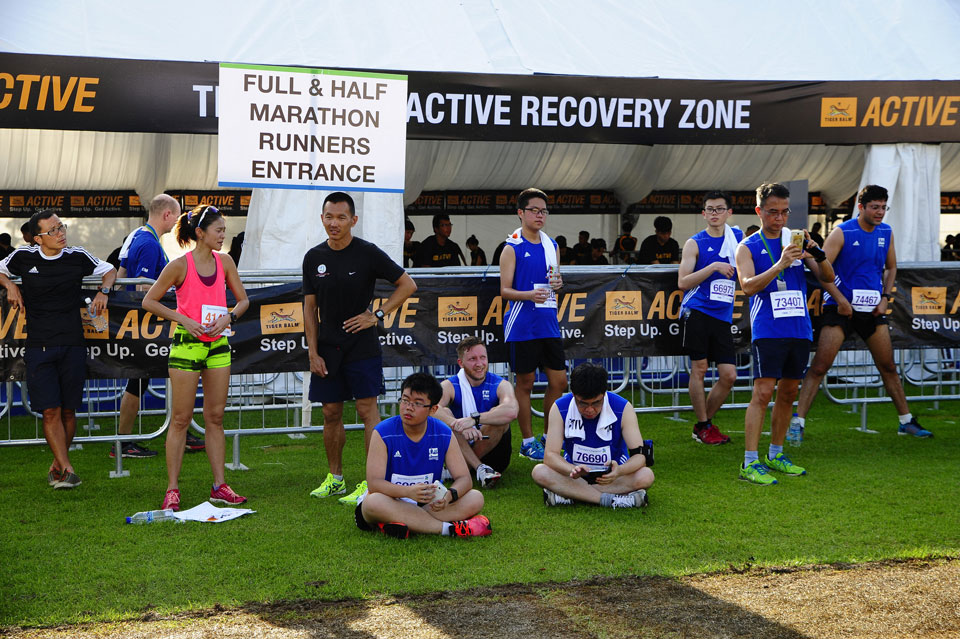
Don’t expect immediate recovery; the full process takes days, but if you follow this protocol, you’ll get off to a great start:
- During the first hour following your finish (and after you’ve returned your timing chip and congratulated your nearest competitors on a race well run), launch a proper cool-down by slowly walking, jogging and stretching to rid your body of a toxic buildup of lactic acid and metabolic waste. Devote a full hour to this wind-down if you can; 20 minutes if you’re in a big rush to get ready for the race post-run festivities!
- Revive your energy stores by consuming at least 16 (preferably 24) ounces of fluid (water, energy drink, juice or even beer) within that first hour to replace lost electrolytes and re-introduce nutrients, replenishing glycogen stores in the liver and muscles which begins the process of muscle cell repair. It’s critical to avoid deep tissue massages at this point because muscle tissue is fragile and you can short-circuit the body’s healing process in the name of pleasure.
- Stay on your feet as much as possible. If you sit around, even to brag about your marathon finish, you will have regrets—and for heaven’s sake, no celebratory champagne toasts. Re-hydration can be drastically compromised by drinking alcohol, so focus on taking in carbohydrate-loaded food and drink equaling about 3 to 5 grams per pound of your usual weight. Does this mean you have to skip the eagerly-awaited marathon post-run festivities? Of course not. Stay on your feet, move around, socialise and it’s okay to brag—the marathon is no small accomplishment for first-timers or experienced runners!
Recovery Phase Two: The next few days
For the next couple of days—as you gather accolades for your Herculean accomplishment, spend more time on your feet than usual while you’re awake, but balance that out by pampering your muscles, getting a little more sleep than usual and putting your feet up when you rest.
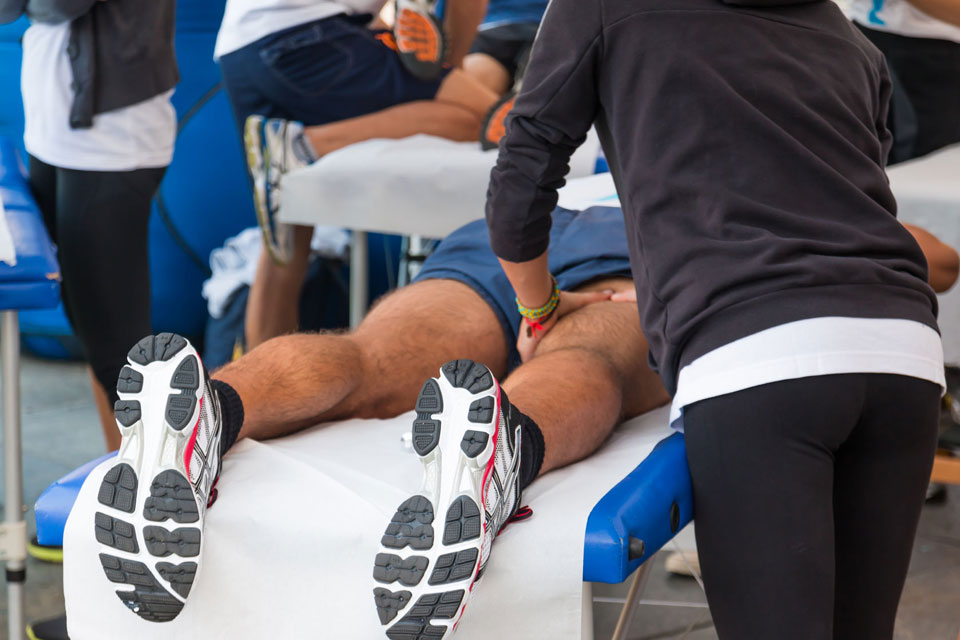
Keep in mind the fact that there’s way more going on with your body than you detect: your bones, blood and muscles are all taking their own sweet time to get back to normal. After all, your body kept you going throughout the marathon—now it’s your turn to reciprocate.
Get the massage you craved when you crossed the finish line no earlier than 48 hours later to begin soothing those tight muscles. What kind of massage? Your choice, as long as you keep in mind the fact that you can’t rush the healing process.
Next up, add recovery foods to your diet to promote healing. Dr. Steve Gangemi, a nutrition expert, recommends doubling up on these foods to speed your recovery:
- Fruits: Cherries, strawberries, blueberries and pomegranates
- Veggies: Broccoli, chili peppers, sweet potatoes and beets
- Fish: Salmon
- Nuts, seeds and spices: Almonds, sunflower seeds, ginger, cinnamon and turmeric
Recovery Phase Three: Continuing your recovery
Gradually returning to your pre-marathon running routines should be a gradual process that includes wearing compression clothing to reduce soreness that can last for weeks if these accessories work for you.
Practice active recovery workout like Yoga, and use warm water soaks in the tub—with or without Epsom salts—are soothing and you’ll have time to reflect on your victory, too.
Keep pampering yourself by gradually re-introducing your active life as it was before the race.
Moderate your expectations! Dare we repeat what we said earlier that everyone recovers at his or her own pace?
According to a quick guide to race recovery time, experts suggest the following: for every hour you race, allocate from four to six days of full recovery time. Is this set in stone?
Don’t be silly! Check out the chart to more accurately assess which modifiers are likely impact the length of your recovery time.
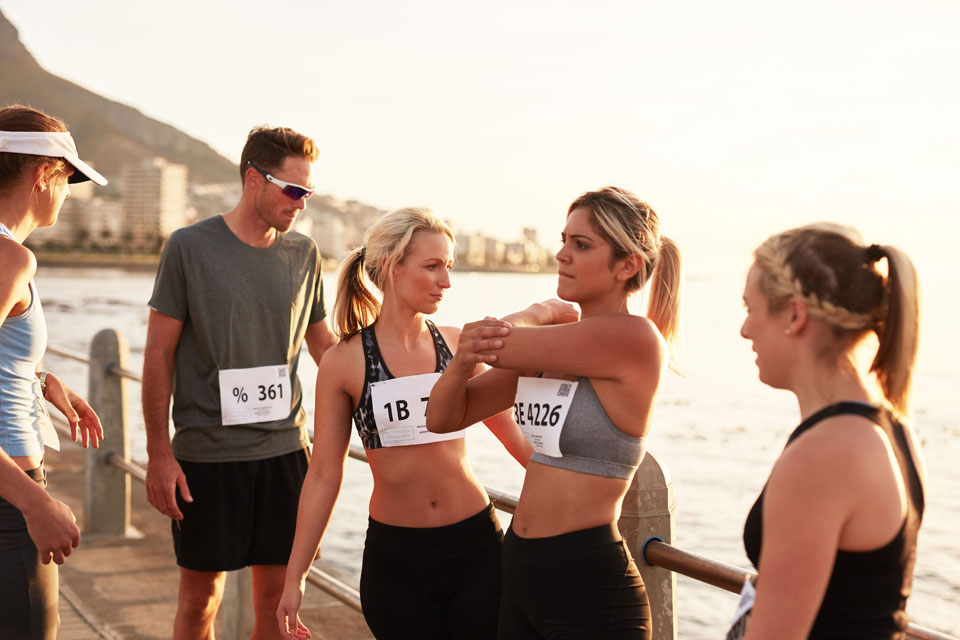
Let’s say that you’re so active on the marathon circuit, you’ve already scheduled your next event, thus your recovery timeline is even tighter. How can you properly heal and prepare at the same time so you avoid a poor outcome at the second event?
By remaining in perpetual training mode so you’re on a consistent fueling regimen that eases you from one event to the next.
Are there risks you should be prepared for? Yes and no. According to RunnersConnect, research is being undertaken on whether back-to-back marathons can lead to health complications, but so far, there’s no scientific evidence that either affirms or refutes the potential for risk.
That stated, if your calendar is packed with lots of marathons you intend to run, there’s no harm in keeping tabs on this particular line of research.
Chime in, runners. What technique, method, food or tip would you like to contribute to this guide? Don’t make us wait until your next marathon to hear from you!


